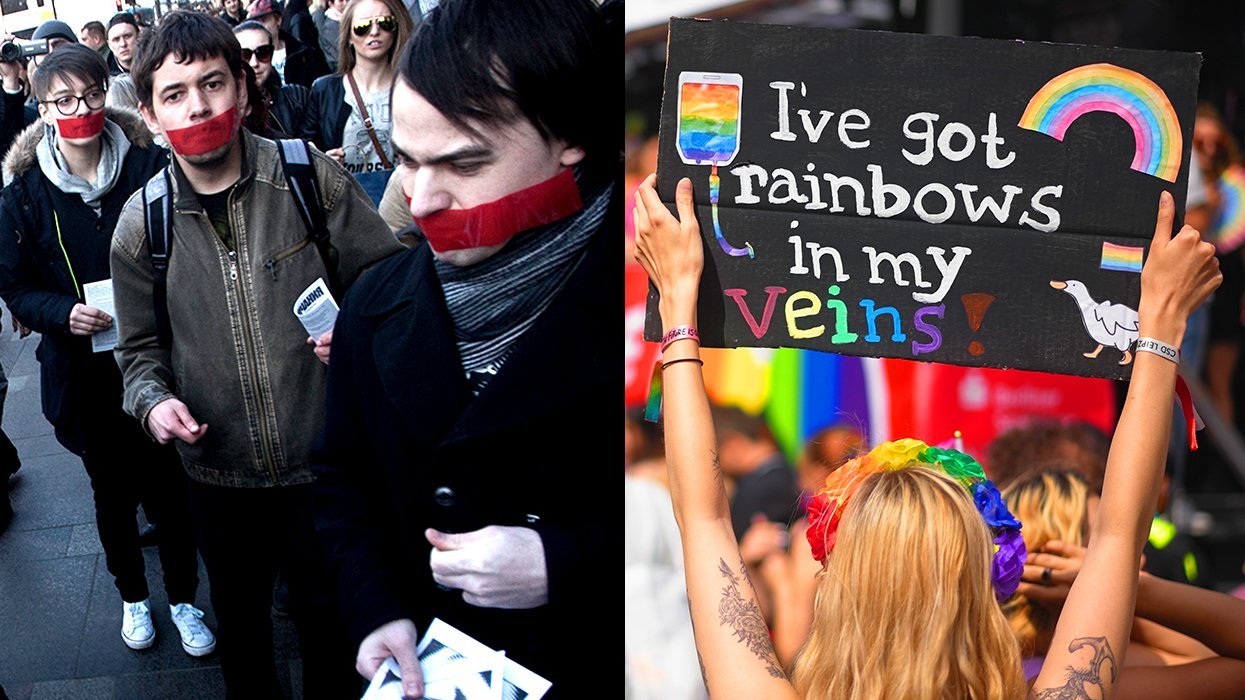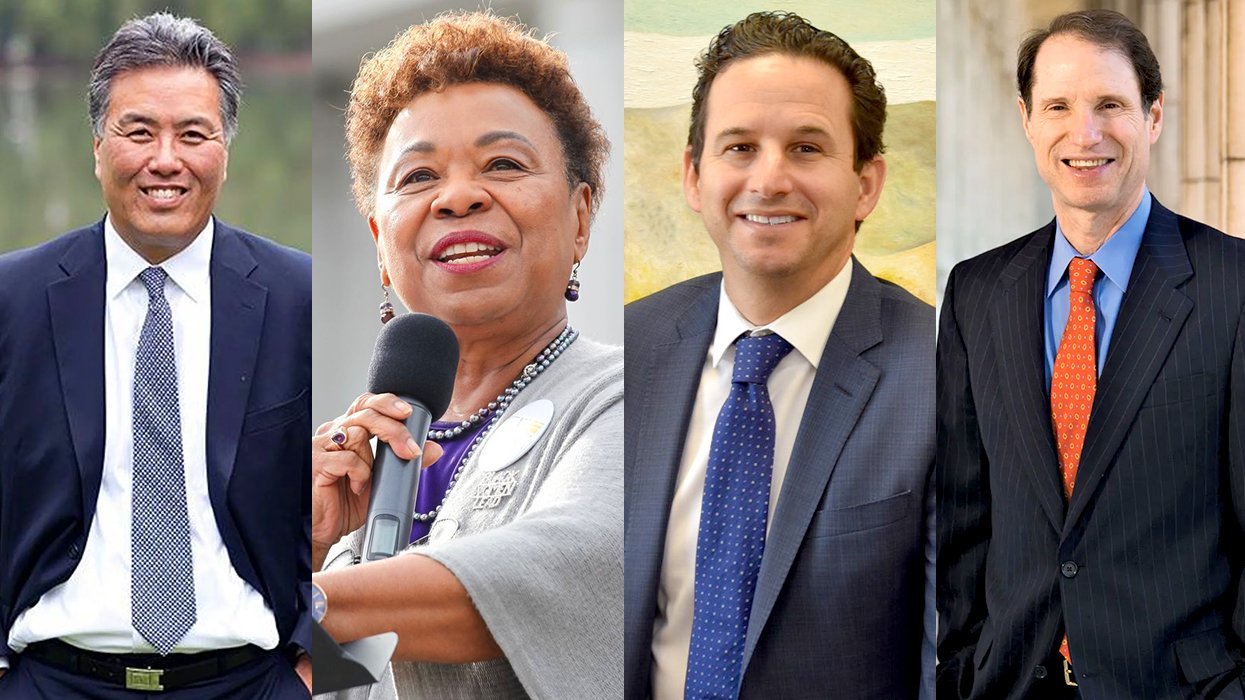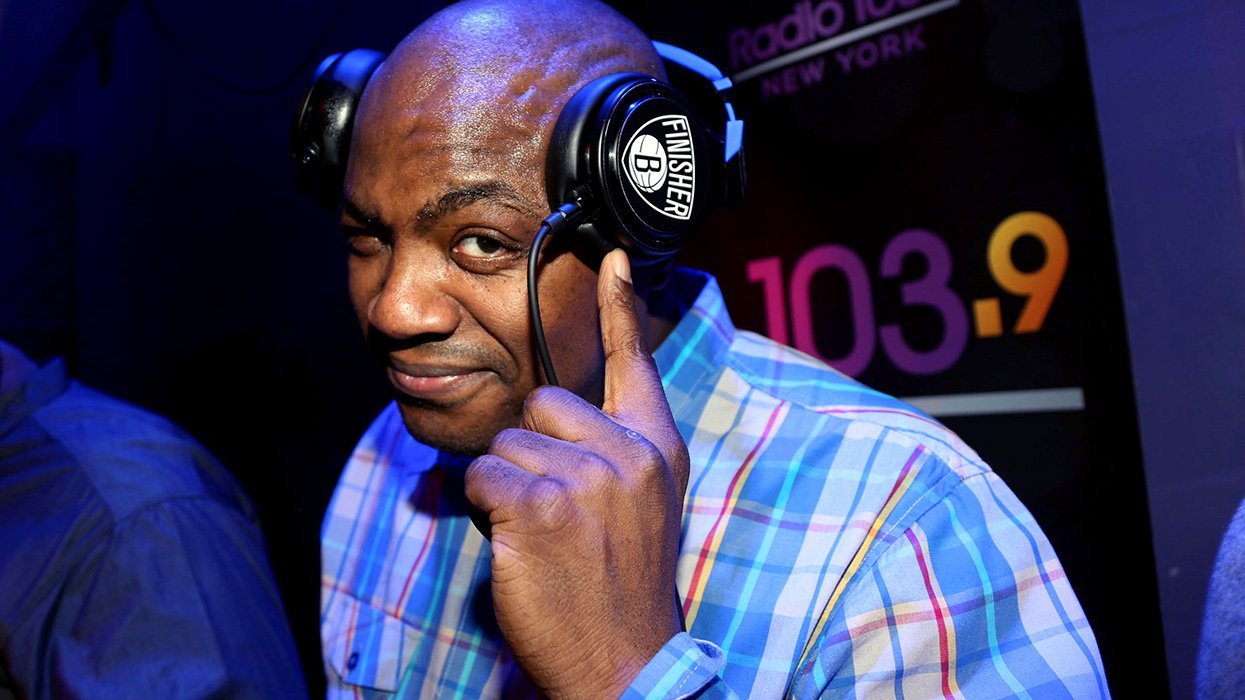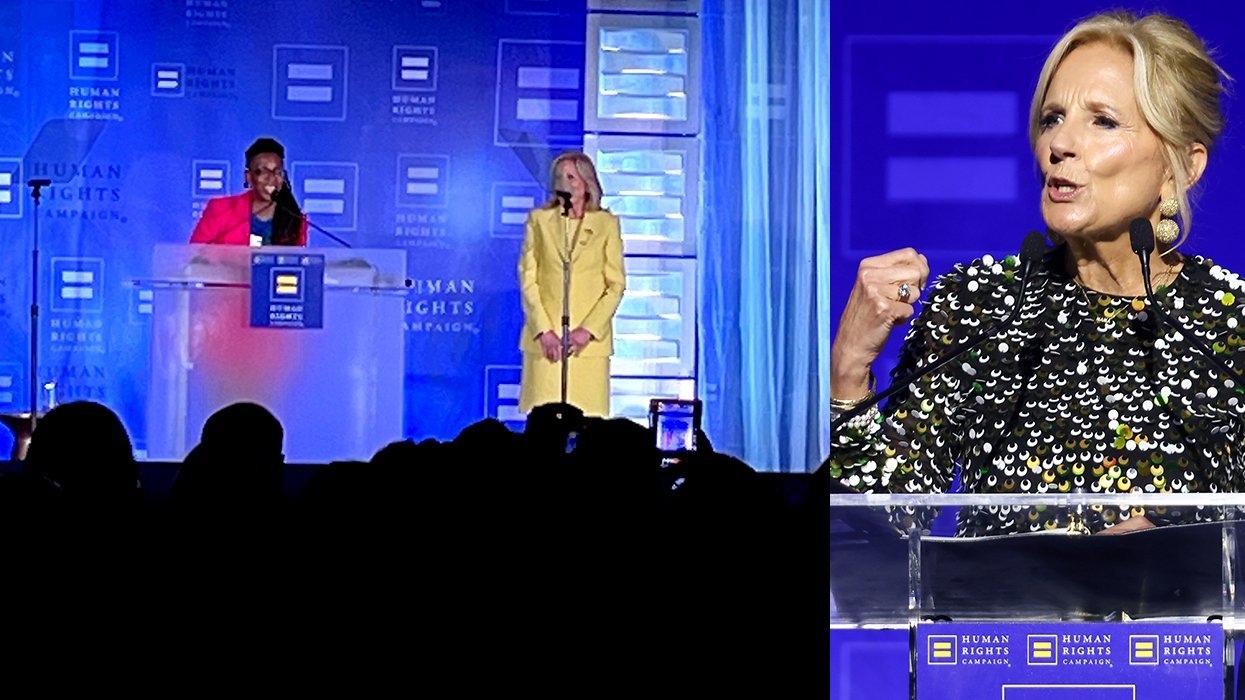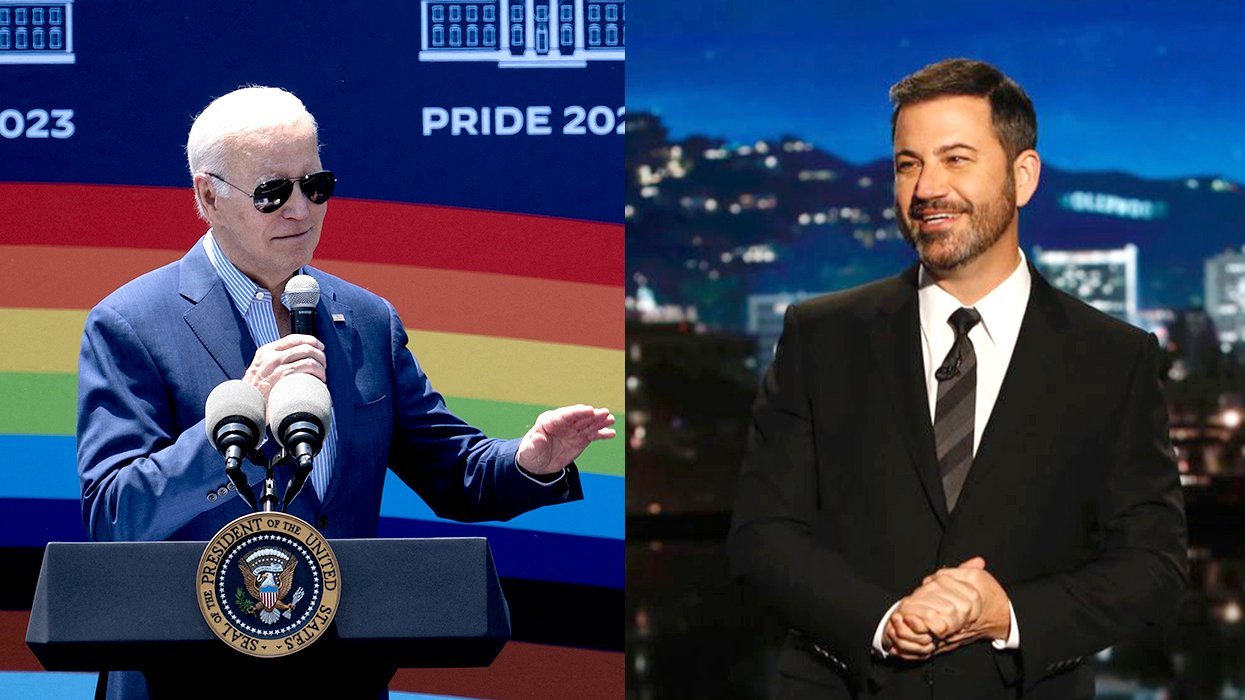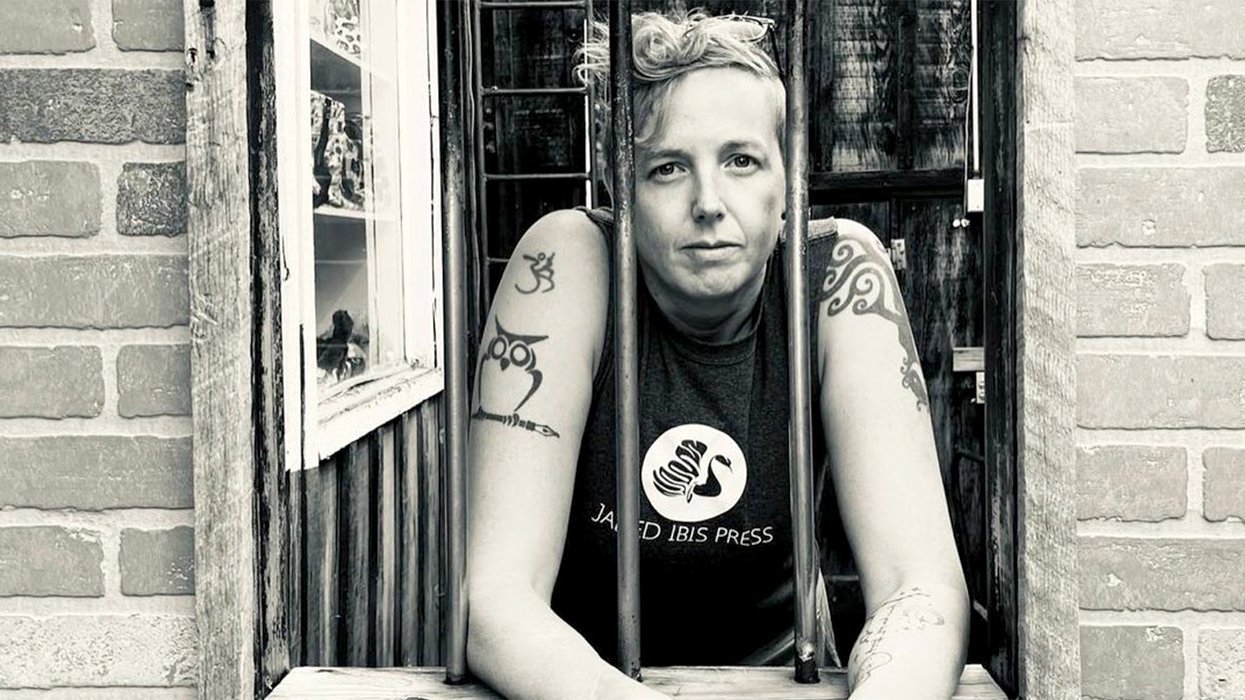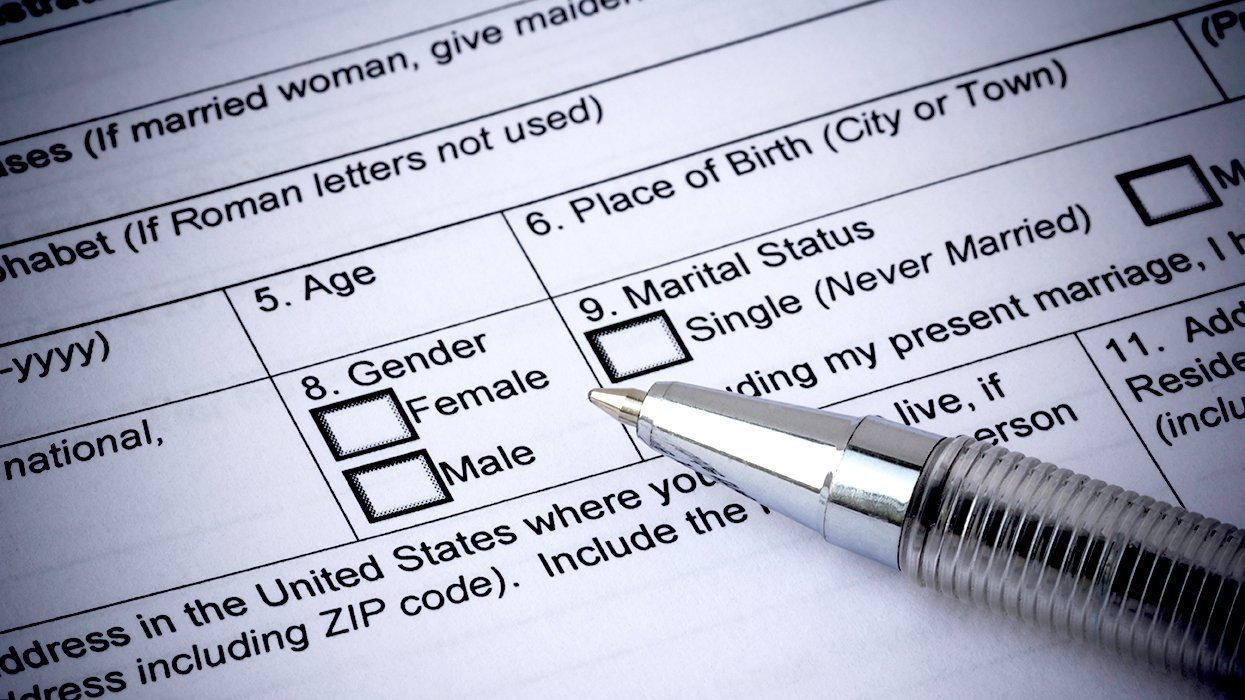CONTACTStaffCAREER OPPORTUNITIESADVERTISE WITH USPRIVACY POLICYPRIVACY PREFERENCESTERMS OF USELEGAL NOTICE
© 2024 Pride Publishing Inc.
All Rights reserved
All Rights reserved
By continuing to use our site, you agree to our Private Policy and Terms of Use.
The Pentagon's top general said Tuesday he should not have voiced his personal view that homosexuality is immoral and should have just stated his support for the military's ''don't ask, don't tell'' policy in an interview that has drawn criticism from lawmakers and gay rights groups.
The written statement by Marine Corps general Peter Pace, chairman of the Joint Chiefs of Staff, did not apologize for his stance on homosexuality. In a newspaper interview Monday, Pace likened homosexual acts to adultery and said the military should not condone it by allowing gays to serve openly in the armed forces.
After a flurry of condemnation Tuesday, Pace issued a statement acknowledging that the Defense Department's ''don't ask, don't tell'' policy on gays is a sensitive subject and said: ''I should have focused more on my support of the policy and less on my personal moral views.''
The military lets gay men and lesbians serve if they keep their sexual orientation private. Commanders may not ask, and service members may not tell. More than 10,000 troops, including more than 50 specialists in Arabic, have been discharged since President Clinton signed it into law in 1994.
In an interview with the Pentagon Channel, the military's in-house television station, Defense secretary Robert Gates declined to answer a question on his opinion of the policy but made what seemed to be a mild rebuke of Pace.
''Now look, you know I think personal opinion really doesn't have a place here,'' Gates said. ''What's important is that we have a law, a statute that governs 'don't ask, don't tell.'''
He added: ''That's the policy of this department, and it's my responsibility to execute that policy as effectively as we can. As long as the law is what it is, that's what we'll do.''
In an interview Monday with the Chicago Tribune, Pace was asked about the policy. He said he supports it, that it allows gays to serve, and that it does not make ''a judgment about individual acts.''
He also said: ''I believe that homosexual acts between individuals are immoral and that we should not condone immoral acts. I do not believe that the armed forces of the United States are well served by saying through our policies that it's OK to be immoral in any way.''
Lawmakers of both parties criticized Pace's remarks.
''We need the most talented people; we need the language skills. We need patriotic Americans who exist across the board in our population,'' said House speaker Nancy Pelosi. ''We don't need moral judgment from the chairman of the Joint Chiefs.''
Republican senator John Warner of Virginia, one of Congress's most respected authorities on military matters and a former Navy secretary, said, ''I respectfully but strongly disagree with the chairman's view that homosexuality is immoral.''
Also chastising Pace was Democratic representative Martin Meehan of Massachusetts, who has introduced legislation repealing the policy. ''Our military is struggling to find and keep the soldiers we need,'' Meehan said of the strain caused by fighting two wars. ''We are turning away good troops to enforce a costly policy of discrimination.''
In a sign of how politically sensitive the issue remains, Democratic leaders have yet to schedule debate on Meehan's bill.
White House spokesman Tony Snow said President Bush ''has always said that the most important thing is that we ought not to prejudge one another. But when it comes to government policy, it's been in place for a long time and we will continue to execute it according to the letter of the law.''
Presidential contender Sen. John McCain, who spoke to reporters outside a fund-raiser in Beverly Hills, Calif., said Pace ''should be given a chance to explain himself.'' Asked for his own view on homosexuality in the military, McCain said he believes the ''don't ask, don't tell'' policy is ''successful and should be maintained.''
Pace, a native of New York City, and a 1967 graduate of the U.S. Naval Academy, said in the interview that he based his views on his upbringing.
''As an individual, I would not want [acceptance of gay behavior] to be our policy, just like I would not want it to be our policy that if we were to find out that so-and-so was sleeping with somebody else's wife, that we would just look the other way, which we do not. We prosecute that kind of immoral behavior,'' he said, according to the audio and a transcript released by his staff.
Two gay advocacy groups strongly condemned Pace's remarks.
''General Pace's comments are outrageous, insensitive, and disrespectful to the 65,000 lesbian and gay troops now serving in our armed forces,'' said the Servicemembers Legal Defense Network, which has represented some of the thousands dismissed from the military for their sexual orientation.
''Their sexual orientation has nothing to do with their capability to serve in the U.S. military,'' said Luis Vizcaino, spokesman for the gay rights group Human Rights Campaign.
''Don't ask, don't tell'' was passed by Congress after a firestorm of debate in which it was argued that allowing gays to serve openly would hurt troop morale and recruitment and undermine the cohesion of combat units. (Pauline Jelinek, AP)
Want more breaking equality news & trending entertainment stories?
Check out our NEW 24/7 streaming service: the Advocate Channel!
Download the Advocate Channel App for your mobile phone and your favorite streaming device!
From our Sponsors
Most Popular
Here Are Our 2024 Election Predictions. Will They Come True?
November 07 2023 1:46 PM
17 Celebs Who Are Out & Proud of Their Trans & Nonbinary Kids
November 30 2023 10:41 AM
Here Are the 15 Most LGBTQ-Friendly Cities in the U.S.
November 01 2023 5:09 PM
Which State Is the Queerest? These Are the States With the Most LGBTQ+ People
December 11 2023 10:00 AM
These 27 Senate Hearing Room Gay Sex Jokes Are Truly Exquisite
December 17 2023 3:33 PM
30 Steamy Photos of Folsom Street Fair 2023 Debauchery
October 15 2023 11:06 PM
10 Cheeky and Homoerotic Photos From Bob Mizer's Nude Films
November 18 2023 10:05 PM
42 Flaming Hot Photos From 2024's Australian Firefighters Calendar
November 10 2023 6:08 PM
These Are the 5 States With the Smallest Percentage of LGBTQ+ People
December 13 2023 9:15 AM
Here are the 15 gayest travel destinations in the world: report
March 26 2024 9:23 AM
Watch Now: Advocate Channel
Trending Stories & News
For more news and videos on advocatechannel.com, click here.
Trending Stories & News
For more news and videos on advocatechannel.com, click here.
Latest Stories
Wherever drag queen Tara Hoot goes, bomb threats seem to follow
April 11 2024 4:26 PM
Right-wing extremists confront transgender people in Florida bathrooms
April 11 2024 2:59 PM
Transgender boxer Patricio Manuel disappointed but defiant after first-round knockout
April 11 2024 12:37 PM
Lesbians have more orgasms than straight women — and yes, it's men's fault
April 11 2024 9:37 AM
Trending stories
Most Recent
Recommended Stories for You














